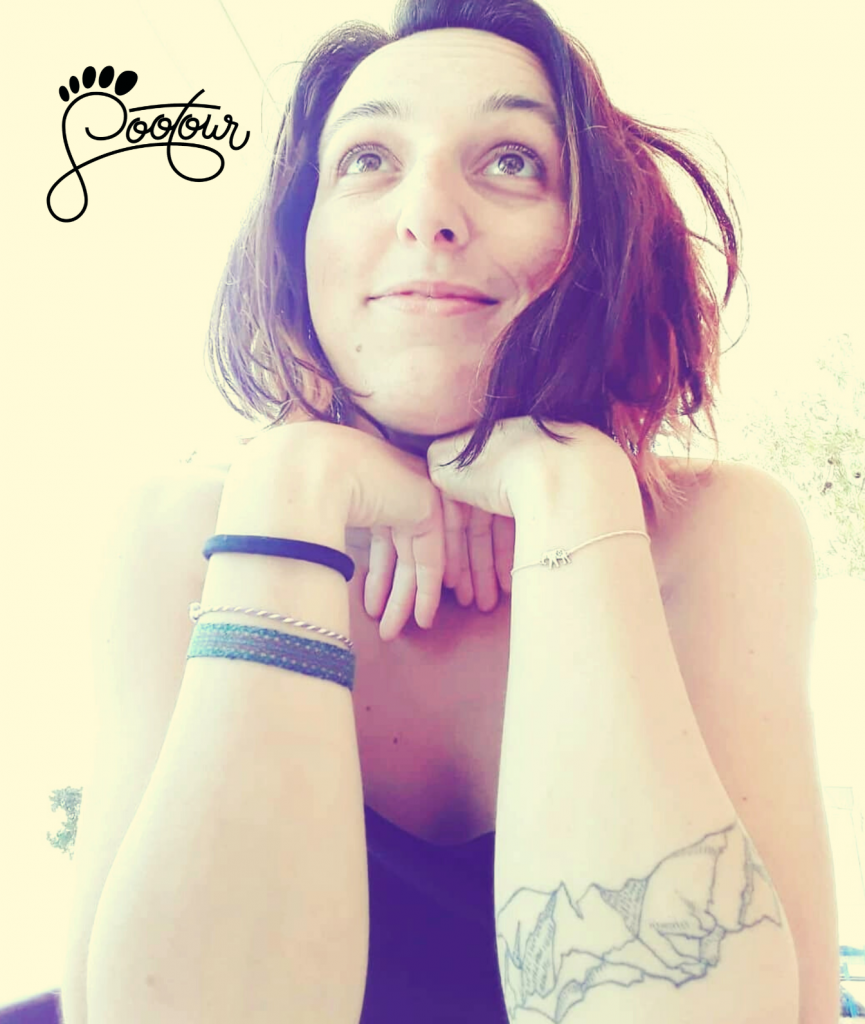

(10 minutes of reading)
20th April 2020, Athens & Bratislava
As promised, with our Humans of Foootour series we set off on a journey at home in Slovakia and around the world so that we can introduce you people who make this world a better place. Today, we travel to Athens where we are meeting Martina Kratka from Czechia, who has been exploring the greek nature for the 8th year now. She works and volunteers with projects that support socially disadvantaged people.
Martina first came to Greece as an EVS volunteer (European Voluntary Service). What first was a 10-months plan has turned into 7 years and Greece has become her second home. Martina has since been exploring Greece, with its breathtaking mountains and beaches, and with the help and company of local friends. She has become part of the local community and its many volunteer and solidarity initiatives. Now she works as a Field Manager with Help Refugees, a charity that has been funding over 60, primarily volunteer-run projects providing material and social support to refugees across Greece.
Although European news agencies stopped reporting on the Greek refugee crisis, the situation has been deteriorating rapidly. UNHCR reports 75 000 new arrivals in 2019 (UNHCR data portal here) and a total of 118 000 refugees and asylum seekers in Greece as of end of February (UNHCR). Due to ineffective and slow asylum procedures, limited capacity in the shelter facilities across Greece, and many other, for us mere mortals often invisible problems and challenges, people live in inhumane conditions. Camps on the Aegean islands (officially Reception and Identification Centres, RIC), that were built to accommodate 6-7000 now host close to 40 000 people living in harsh conditions and exposed to increasing health risks due to Covid-19 (source ECRE). Another 28 000 people live in 30 camps on the mainland, three of which have been in a quarantine lock down due to the virus. Unfortunately, the conditions in these facilities do not allow, or severely limit the possibilities to comply with preventative hygiene measures as well as the „stay at home“ regulation. Therefore it is anticipated that the situation in the refugee camps is set to get worse. Greece on the other hand has implemented strict measures to contain the spread of Covid-19, aimed primarily at the regular population. Martina will share how this has been playing out and how civil society is helping the most vulnerable people, some of whom have no access to drinking water, sanitation, food, or shelter.

Photo credit: Manolis Lagoutaris
Do you see any shortcomings and challenges in your community during this period? How are these addressed and how dooes the civil society react?
There is indeed a lot of issues, I now primarily help with the homeless people. Their possibilities to get food or even water have been reduced significantly. Firstly, there is almost no passerby, so there is no one who could contribute with some change and secondly, shops and cafes, where the homeless could ask for a little food or water are now shut. There is a lot of homeless people in Greece and there is even more people who although have a home, they have nothing else, so they rely on support from others. They are often people with health problems, addictions, but also refugees and migrants. Organizations, informal groups as well as individuals, have come together and are now distributing fresh cooked food all over the city in Athens and Thessaloniki. Food is cooked in one large kitchen, but also in homes preparing 10 servings each. There is a weekly menu, and depending on the daily needs individuals can participate as well. This way, up to 600 servings in Athens and 200 servings in Thessaloniki are delivered daily.
Another big problem is the refugee camps where thousands of people live together in a small space. The worst is the situation on the Greek islands on the border with Turkey, where the number of asylum seekers is much higher than the capacity of the facilities. International organizations, volunteer groups and locals have been calling for proactive solutions for months. Now this call for help is taking on far greater proportions.The situation on the mainland is no better and everyone is afraid of outbreaks in refugee camps, preventive measures and solutions come very slowly – often these are not perceived very positively. The decision to put Ritsona camp under quarantine was met with a huge wave of criticism. Here, one and later 20 positive cases were discovered. The camp in Ritsona hosts almost 2,500 people.
In general however, after the initial shock and, unfortunately, in my opinion, inappropriate media propaganda, the situation is now slowly stabilizing and people are becoming interested in others and are looking for ways to help.
Do you manage to find something positive about this situation?
In general, it is not easy for me to see something positive about the situation. It took me some time to learn how to function during this period, and I certainly would not talk of a positive personal development at all. On the other hand, I feel that the situation has helped me from a professional perspective. I am broadening my horizons, I’m getting involved in new projects, communication in the teams has improved significantly, so I hope that part of this new organizational structure and culture will survive after the corona crisis.
At the same time, I hope that the current situation will also fuel new political waves and public debate on health and public services in general. The underestimated capacity of health services has contributed to general fear and resulted, to the collapse of public life in many countries.
How has the pandemic impacted your work and the work of other non-profit organizations working with refugees?
After the initial shock, when bans and restrictions were increasing daily, international volunteers realized that they could be a potential threat to people they came to help, and when the situation seemed rather hopeless, everything reorganized and continues to work perhaps with even greater enthusiasm. All educational activities have moved online. What was an amazing surprise, was the level of collaboration between organizations, the exchange of ideas and practical tips on how to use the online learning methodology, what platform to use, how to ensure that everyone had access to Internet and much more. The teams on the ground are now smaller but more stable, focusing on the distribution covering the basic needs of asylum seekers, trying to create conditions to enable meeting the hygiene requirements during the corona virus and many other things.
What was also a great surprise was the public support for crowdfunding in the Help Refugees campaigns for this type of support. Although we still have to wait for political solutions, there is hope and the first positive changes are already emerging – relocation of unancompanied children to Germany and Luxembourg and the tranfer of elderly vulnerable people from the islands. But above all, the support and solidarity of both local and international communities is still present.

Photo credit Helena Maskova – Just for one summer : Tzoumerka (left), Delfi (top right), Parnassos (bottom right)
And last but not least, would you share what’s your favorite activity or place in Greece?
My favorite activity is basically everything in the nature. In both summer and winter, I venture out almost every weekend. Long walks and hikes through meadows dotted with blooming flowers or covered in snow have been my hobbies since long. And who would have said that there is so much snow in the mountains in Greece – I had no idea. Rock climbing is a new addition – I started only in the autumn, but I enjoy it very much and in Greece you can climb all year round. You can combine climbing with the sea, as many islands are mountainous. You can build a tent somewhere near the beach and after a morning refreshment in the sea head straight to the rocks – such famous island is Kalymnos, where I definitely plan to go. On the mainland, I personally prefer the inaccessible mountains in the northwest of Greece, where you don’t meet anybody all day – for example, Tzoumerka or Valia Kalda are made for this type of adventure.
***
And so we come to the end of the first of the Humans of Footour series – feeling humbled and thankful! We say good bye to Martina and keep our fingers crossed so that the situation improves very soon, and togehter with her colleagues and partner organizations they can continue to help effectively. And of course so that she can escape to the mountains and recharge her energy soon.
If you would like to support the work of Martina and Help Refugees, you can do so here: https://donate.helprefugees.org/campaigns/coronavirus-appeal/
You can also help through the Choose Love campaign: https://helprefugees.org/choose-love/
If you would like to learn more about the refugee crisis in Greece, you will soon be able to read another article, where we will give you an even closer look at this topic. In the meantime, you will find relevant information and articles here:
- UNHCR Data Portal: https://data2.unhcr.org/en/situations/mediterranean/location/5179
- Relief web: https://reliefweb.int/country/grc
- IOM Site Management Support Factsheet, March 2020 – Information on refugee camps on the mainland https://greece.iom.int/sites/default/files/FINAL-March.compressed_0.pdf
*Note: RIC facilities on the islands, and in Evros region are not included here. Further, refugees are also hosted in apartment facilities, under the UNHCR ESTIA program, and in temporary hotel accommodation provided primarily by IOM.
- UNHCR ESTIA: https://data2.unhcr.org/en/documents/details/75413
- Amnesty report: Caught in a political game: https://reliefweb.int/report/greece/caught-political-game-asylum-seekers-and-migrants-greeceturkey-border-pay-price-europe
- Relocation of unaccompanied children to Germany and Luxembourg https://www.unhcr.org/news/press/2020/4/5e9707ed4/un-agencies-welcome-first-relocation-unaccompanied-children-greece.html
https://www.dw.com/en/germany-takes-in-afghan-syrian-refugee-children-from-greek-camp/a-53172989
Last but not least, if you would like to volunteer with a project in Greece, Indigo volunteers can help you find a project https://indigovolunteers.org/
This article has been published as a part of a series called Humans of Footour. Our wanders through life and world have brought us many stories and new, unique perspectives on the world and people around us. For now, we no longer wander, instead we are staying at home and build our capacity. We are working hard, so that we all can travel more responsibly and only leave a positive footprint behind.
We can’t wait for our joint adventures – once it will be safe again, until then we would like to share with you stories from Slovakia and around the world. Stories of people, who are close to our heart and our philosophy. People, who are Footourists by nature – who care and look to understand their impact, who help and make this world a better place, and inspire others to do the same. For more info about our future travel adventures click here!
You can support Necestou(ka) Footour with 2 or 3% of your income tax. More information here.
